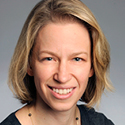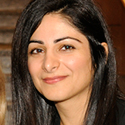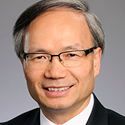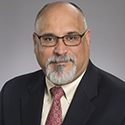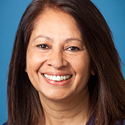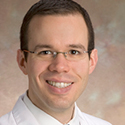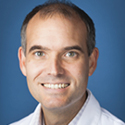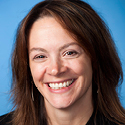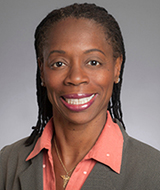If this message displays incorrectly, please view the web page
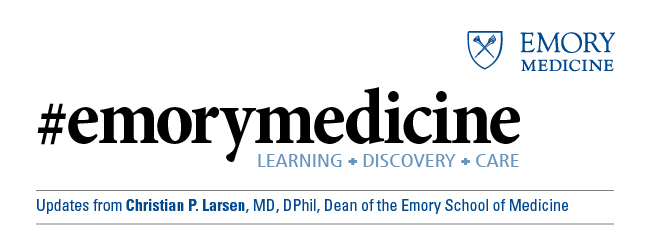
| March 15, 2016 | ||||||||||
Notables
Wendy Armstrong (medicine) was named chair-elect for the HIV Medicine Association. Daniel Barrow (neurosurgery) was named Secretary of the American Academy of Neurological Surgeons.
Karen Carlson (anesthesiology) was elected to the Society of Ambulatory Anesthesiology Board of Directors.
Negar Fani (psychiatry & behavioral sciences) received the Distinguished Alumna Award from the Clinical Psychology Program at Georgia State.
Haian Fu (pharmacology) was named to a Winship Partner in Research Endowed Chair. Michael Greenwald (pediatrics) was named chair-elect of the Pediatric Emergency Medicine Section of the American College of Emergency Physicians. Lucky Jain (pediatrics) received the Duane Alexander Award from the Eunice Kennedy Shriver National Institute of Child Health & Human Development.
Jaffar Khan (neurology) received the Parker J. Palmer Courage to Teach Award from the Accreditation Council for Graduate Medical Education, given to those who foster innovation and improvement in their residency programs and serve as exemplary role models for residents.
Naghma Khan (pediatrics) was awarded the Georgia College of Emergency Physicians' Medical Director of the Year award. Khan is the first pediatric emergency medicine director to be given this award.
Matthew Klopman (anesthesiology) was named vice-chair of the Georgia Society of Anesthesiologists. Sam Lim (medicine) received the American College of Rheumatology's Distinguished Service Award and Clinical Investigator Fellowship Award. Fred Rodriguez (pediatrics) was selected as a member of the Alliance for Adult Research in Congenital Cardiology.
Cary Sauer (pediatrics) received the North American Society for Pediatric Gastroenterology, Hepatology, and Nutrition Teri Li Award for Education.
Celine Saulnier (pediatrics) was selected to serve on the Autism Science Foundation's Science Committee for the Autism Sister's Project, which investigates the female protective factor in autism by examining data from individuals with autism and their female siblings. Rani Singh (genetics) received the 2016 PKU Hero Award from the National Phenylketonuria Alliance. Sharon Weiss (pathology) received the 2015 U.S. and Canadian Academy of Pathology Board's Distinguished Pathologist award for service in the development of the discipline of pathology.
Wendy Wright (neurology) received the Presidential Service Award from the Neurocritical Care Society. EVENTS Hamilton Holmes lecture, March 16, 5 p.m., SOM 110, speaker Rev. Dr. Raphael Warnock, senior pastor, Atlanta's Ebenezer Baptist Church. Clinical Research Boot Camp 301, March 18, 7:45 a.m. to 4:15 p.m., Dobbs University Center ballroom, focus on statistics. Medical Education Day, March 21, noon to 4:15 p.m., SOM auditorium 110. Thomas Nasca, CEO Accreditation Council for Graduate Medical Education, medical education workshops and presentations. Academic & Industry Intersection Conference, April 14, 9 a.m. to 1:30 p.m., Emory Conference Center Hotel, Starvine Ballroom. "Georgia as a Biotechnology Capital?" Dean's Distinguished Faculty Lecture and Award, May 12, 5:30 p.m., SOM auditorium 110. Richard Compans, professor of microbiology and immunology, speaks on "Emergence and Control of Influenza Viruses." Reception to follow. Advancing Health Care Quality Research at Emory, May 18, 8:30 a.m. to 5 p.m., SOM auditorium 110 and lobby. Keynote speaker Pamela Douglas, Ursula Geller Professor for Research in Cardiovascular Disease at Duke University. |
|
The Power of Diversity and Inclusion
The commitment of the faculty, staff, and learners of Emory Medicine to improving the health and well-being of the people and communities we serve makes a palpable impact every day. Consider the care delivered in trauma bays at Grady, our neonatal intensive care units, multidisciplinary cancer care programs at Winship, and migrant worker clinics in the farm fields of South Georgia; the discoveries emerging from our fundamental science labs; and the information and skills taught in our classrooms and through our training programs in Ethiopia and other efforts around the world. Our local and global reach requires that we self-reflect by asking some important questions. How do we best understand the health needs of those we serve? How do we best translate that understanding into compassionate care, disease prevention, and health promotion that transcend the walls of our clinics and hospitals and provide support for our patients in their homes and daily lives? How do we best conceive of and deliver new solutions to cure and prevent disease and foster health? Studies and concepts from non-profit think tanks like the Center for Talent Innovation and from thought leaders like Marc Nivet, chief diversity officer at the AAMC, converge on the power of diversity and a culture of inclusion as a strategic advantage to improve health and foster innovation. This is captured in the white paper "How Diversity Can Drive Innovation," an excerpt from which reads: "leaders who behave inclusively foster a speak-up culture, one in which inherently diverse members feel welcome, feel free to express their views and opinions, and are confident that their ideas are heard and recognized … (creating) a culture where insights get shared, heard, and acted upon." The development of a culture that fosters diversity and inclusion is a commitment to an ongoing journey. We devoted time and energy to training in recognizing unconscious bias at this year's leadership retreats for our department chairs, Emory Hospital leaders, and Grady service chiefs. We have begun to critically examine our recruitment and development processes. To bring more voices to the table, the School of Medicine has launched a Diversity & Inclusion Committee made up of faculty, students, and staff who are committed to helping guide and lead such efforts. The committee will work in concert with the Emory University Advisory Committee on Community and Diversity to establish SOM diversity and community priorities, recommend goals and specific actions, and continuously assess the SOM's progress. One of the committee's immediate goals is to conduct a diversity climate survey of all SOM faculty, staff, and students by fall 2016.
"This is an exciting time for Emory to approach diversity and inclusion from a holistic viewpoint, addressing what now exists and what we hope to achieve across the enterprise," says chair Sheryl Heron (emergency medicine), who is one of the editors of the recently published textbook Diversity and Inclusion in Quality Patient Care. Our commitment to building a diverse community and inclusive culture is not only the right thing to do, it is a strategic imperative that will accelerate our efforts to foster the health and well-being of those we serve as well as enrich our Emory Medicine community. In addition to Heron, current members of the SOM Diversity & Inclusion Committee include Associate Dean for Medical Education Marilane Bond, Professor of Medicine Jada Bussey-Jones, Associate Director of Admissions June Eddingfield, Assistant Professor of Medicine Maura George, MD/PhD student Mojibade Natasha Hassan, Associate Director of Medical Education and Diversity Outreach Yolanda Hood, Strategic Initiatives Manager Emily Hulkower, Assistant Dean and Director of Culture Hal Jones, Associate Dean and Director of Multicultural Medical Student Affairs Robert Lee, senior resident in general surgery Blayne Amir Sayed, Director of Faculty Administration Malik Smith, Assistant Dean for Medical Education Research Hugh Stoddard, Associate Director of Admissions MD/PhD program Maxine Thompson, and MD/PhD student Mfon Effiong Umoh. Sparking Extraordinary Results
Emory Medicine’s catalyst funding program is designed to assist investigators in establishing new and exciting research projects that take advantage of the core platforms of excellence across the SOM. Recent examples of outstanding investigators who received catalyst funds include: Colleen Kraft (pathology/infectious diseases) and co-PI Nadine Rouphael (infectious diseases), who are testing whether microbiome restoration can improve outcomes in patients who receive multiple courses of antibiotics because of immunosuppression. Wilfried Rossoll (cell biology), who is examining whether aggregated TDP-43, a bad actor in both ALS (amyotrophic lateral sclerosis) and FTD (frontotemporal dementia), disrupts transport of proteins between the cytoplasm and the nucleus. Rossoll and colleagues have devised a novel strategy for probing pathological protein aggregates, based on fusion of a promiscuous biotin protein ligase to both full-length TDP-43 and an aggregation-prone fragment. "The Emory Medicine Catalyst Funding Award will allow us—in collaboration with colleagues in cell biology, biochemistry, and neurology—to generate enough preliminary data on this exciting new research project to apply for federal funding," Rossoll says. For more information about the catalyst funding program, click here. Defending Against Bacterial "Wolves"
Much like sheep dogs, vigilantly protecting their flock, the body's galectin proteins defend our cells (sheep) against bacteria that might try to disguise themselves (wolves). Sean Stowell (pathology) and colleagues explain how the process works in this video, the second in a series highlighting basic research in the SOM. The anti-bacterial properties of galectins were identified by Stowell and other Emory scientists. Because of their ability to selectively target some kinds of bacteria, galectins could potentially be used as antibiotics to treat infections without wiping out all bacteria in the body. This video, which has proven popular on YouTube, showcases the breadth of research being conducted within Emory's Antibiotic Resistance Center. It was produced by senior online producer Damon Meharg and science writer Quinn Eastman and narrated by art director Peta Westmaas. |

